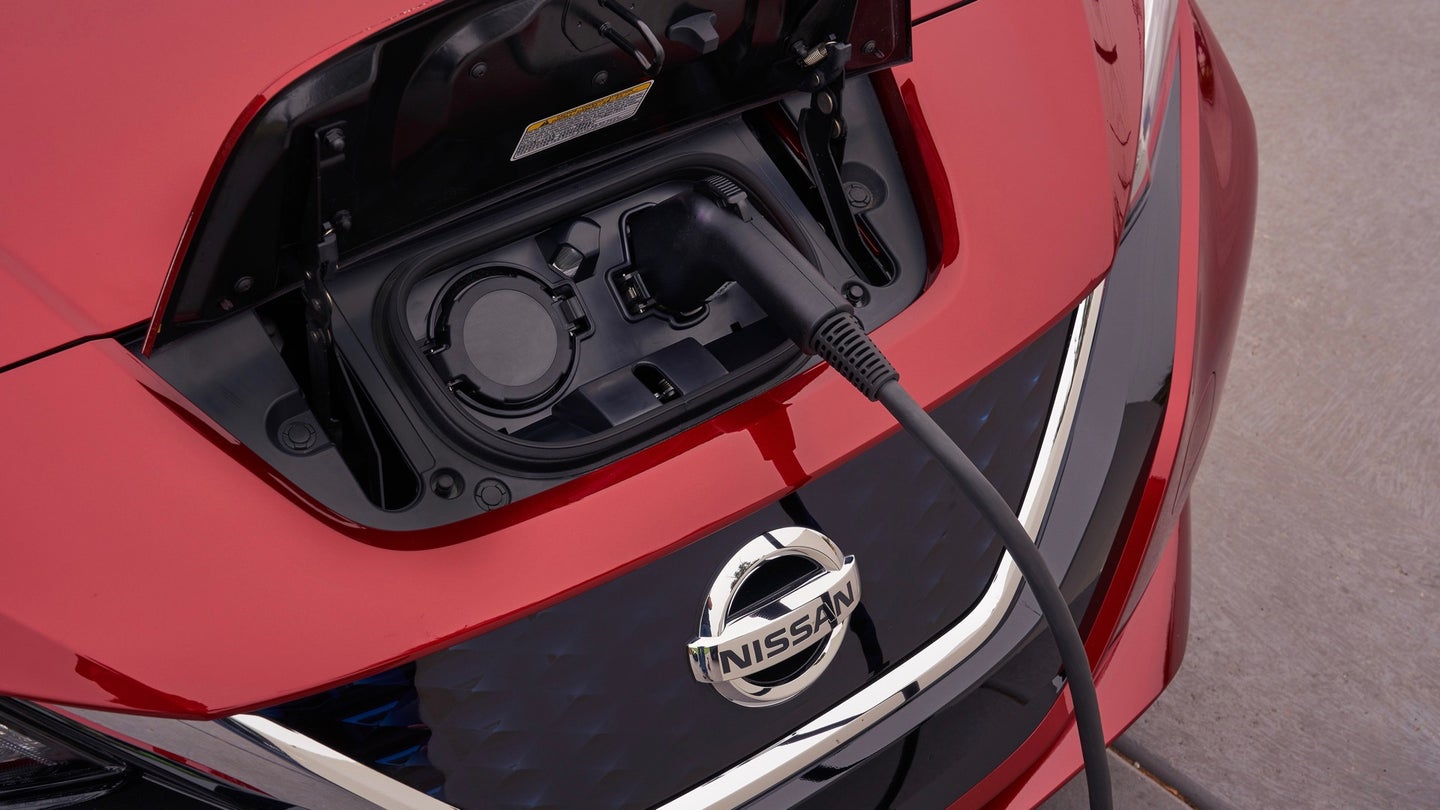Nissan Will Test Remote Electric-Car Charging
It could form the basis for ‘virtual power plants,’ the company says.

Nissan is teaming up with Japanese utility Kansai Electric Power Company (KEPCO), and electronics company Sumitomo to test charging electric cars via remote control. The companies believe this could be an important step toward making electric cars into four-wheeled extensions of the power grid.
The test will be conducted in Japan with 60 all-electric cars and plug-in hybrids owned by individual customers and KEPCO. The cars will be equipped with hardware needed to enable remote charging, and linked to servers that will allow for data collection. It's part of the Kansai VPP Project, an effort to integrate multiple power sources into what Nissan calls "virtual power plants."
Just as stationary battery packs can be used for energy storage, Nissan and other companies believe the battery packs in electric cars can be used in the same way. In theory, electric cars could absorb excess electricity from the grid during charging, and discharge that energy back into the grid during periods of higher demand. Evening out the amount of electricity being produced and the amount being consumed is called "balancing the grid," and it could help prolong the life of grid infrastructure.
Both the University of Delaware and the U.S. Air Force have tested this concept, often referred to as "vehicle-to-grid" or "V2G," for short. But actually implementing it would require automakers to sell large numbers of electric cars capable of discharging power back into the grid, and automakers won't do that until regulations change. The regulatory situation for using electric cars as mobile power sources is decidedly murky and will need to be cleared up for V2G to be implemented in the U.S.
Electric cars could also serve as an emergency backup power source if the grid goes down. This is a major issue in Nissan's home country of Japan, which is looking to avoid a repeat of the blackouts caused by the 2011 earthquake and tsunami, and the accompanying Fukushima Daiichi nuclear disaster. Nissan already offers a setup in Japan that allows the Leaf to power a house. At the U.S. launch of the 2018 Leaf, the automaker said it was considering offering a similar system here. At the time, Nissan said the two major hurdles were regulations and finding a U.S.-based hardware supplier.
